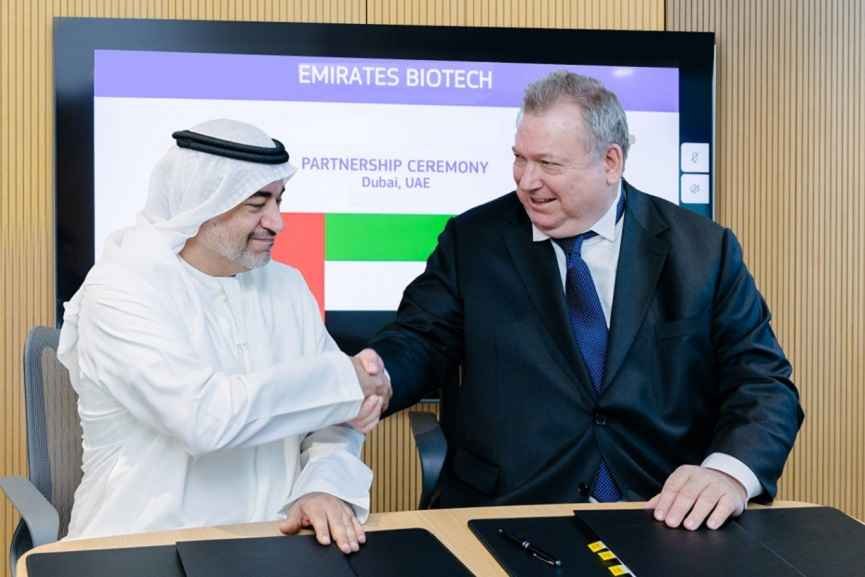
Emirates Biotech, a prominent player in the UAE’s growing biotechnology sector, has announced plans to construct what is poised to become the world’s largest production facility for polylactic acid (PLA). The plant, set to break ground in the coming months, aims to revolutionize the global bioplastic industry by providing a sustainable alternative to petroleum-based plastics, which have long been associated with environmental damage.
With a sharp focus on sustainability and innovation, Emirates Biotech’s move is positioned as a significant step in the UAE’s broader strategy to enhance its leadership in sustainable manufacturing technologies. The new facility, located in the industrial hub of the UAE, is expected to produce over 100,000 metric tons of PLA annually, surpassing current global leaders in PLA production by a substantial margin. This ambitious project is in line with the country’s vision to diversify its economy and lead in eco-friendly innovations.
PLA, a biodegradable plastic derived from renewable resources such as corn starch or sugarcane, has emerged as a viable solution to combat plastic pollution. The material is increasingly used in packaging, textiles, and medical devices, offering a greener alternative to traditional plastics that do not decompose. As the demand for eco-friendly materials continues to grow, the new Emirates Biotech plant is positioned to meet this demand at an unprecedented scale, which could have profound implications for both the regional and global markets.
The UAE’s investment in bioplastics aligns with global sustainability goals, particularly in the wake of rising concerns about plastic waste. With its state-of-the-art technology, the PLA facility promises to enhance production efficiency and lower the cost of manufacturing PLA, making it a more viable alternative for businesses across industries looking to adopt sustainable practices. By capitalizing on the growing interest in green products, Emirates Biotech is tapping into an expanding market that seeks innovative, eco-conscious solutions.
Several industry experts have weighed in on the significance of this project. Experts point out that PLA’s growing market share is a direct response to increasing consumer demand for environmentally friendly alternatives to conventional plastic. The bioplastics market, which includes materials like PLA, is projected to grow rapidly over the next decade, driven by the rising global commitment to reducing plastic waste. This shift is expected to be particularly important in regions like the European Union and North America, where regulatory pressures to adopt sustainable practices are mounting.
The decision to build the world’s largest PLA production facility also places the UAE at the forefront of the global bioplastics movement. While companies in Europe, North America, and parts of Asia have made strides in developing PLA technology, the scale and scope of Emirates Biotech’s investment is unmatched. The plant will not only produce PLA but also advance research and development (R&D) efforts related to bioplastic innovations. The company’s long-term vision includes developing next-generation bioplastics that can be used in even more diverse applications.
By tapping into the rapidly evolving bioplastics market, Emirates Biotech aims to meet the increasing global demand for sustainable materials. Key markets for PLA include food and beverage packaging, where major companies are looking for alternatives to petroleum-based plastics. The automotive industry, too, has shown interest in incorporating bioplastics into car interiors, where PLA’s lightweight and durable properties are especially beneficial. The medical field is another growing area for PLA usage, with biodegradable PLA implants already showing promise in surgeries.
The development of this world-leading facility is expected to create thousands of jobs in the UAE, both directly and indirectly. Construction will require a substantial workforce, and the long-term operational needs will involve skilled professionals in the fields of biochemistry, material science, and engineering. The influx of talent will also support the UAE’s broader goals of becoming a hub for cutting-edge research in renewable energy and sustainable manufacturing.
The plant’s location in the UAE is significant for several reasons. The country has long been an advocate of advancing green technologies, and this move reinforces its position as a leader in sustainability. The UAE government has heavily invested in research and development across various sectors, with bioplastics being a central area of focus. The presence of Emirates Biotech’s new plant will likely attract additional investment into the region’s biotech industry, bolstering the UAE’s ambition to become a global center for sustainable technology.



